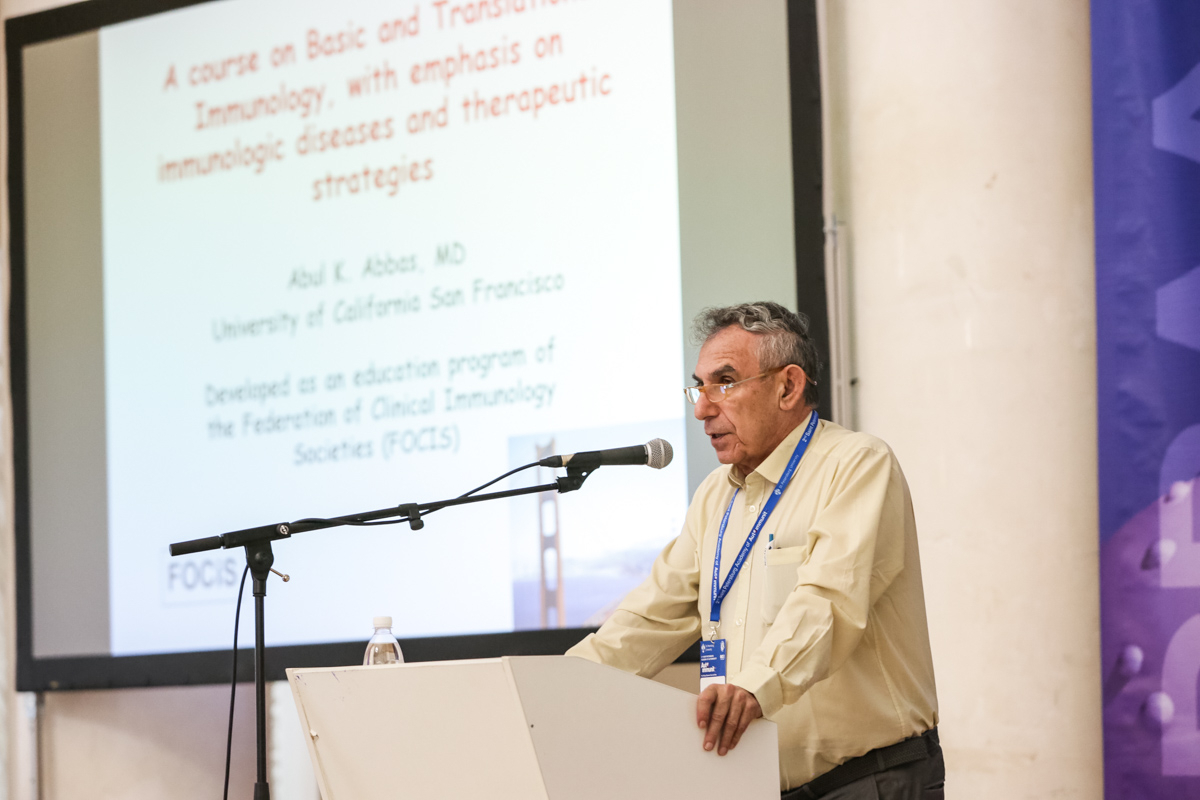St Petersburg University expert: high ferritin levels may indicate severe COVID-19

Professor Yehuda Shoenfeld is Head of the Laboratory of the Mosaic of Autoimmunity at St Petersburg University and founder and Head of the Zabludowicz Center for Autoimmune Diseases (Israel). During the Cradle of Virology online conference, he spoke about the correlation between the severity of COVID-19 symptoms and high levels of ferritin. It turns out that elevated ferritin concentrations are associated with an increased production of special signalling molecules, which can lead to complications and death.
Yehuda Shoenfeld is the world’s leading expert in the research, treatment and prevention of autoimmune diseases. Professor Shoenfeld noted that the hyperferritinemic syndrome was thoroughly studied a while ago: ‘We have already published the data on this clinical condition. In 50% of cases, patients with exceptionally high ferritin levels die. In fact, what we are witnessing at present with the new coronavirus infection is reminiscent of the situation with the hyperferritinemic syndrome.’
Ferritin is a major intracellular iron storage protein in all organisms. It binds free ions of the trace element, neutralising its toxic properties and increasing its solubility. In the soluble form, the body is able to expend iron as needed, in particular for regulation of cellular oxygen metabolism. Low ferritin levels result in lower iron concentrations and iron deficiency anaemia. Elevated levels of ferritin, or hyperferritinemia, indicate the presence of viruses and bacteria into the body. Hyperferritinemia can also be caused by a genetic mutation. In this case, it leads to neurological disorders and vision problems.
Recent studies by Italian scientists have shown that ferritin is able to activate macrophages. The latter are a type of white blood cell of the immune system that play a critical role in innate immunity, being the body’s first line of defence.
This is evidenced by hyperferritinemia in patients with septic shock, catastrophic antiphospholipid syndrome, and other medical conditions characterised by macrophage activation. Similar observations have been reported by scientists from China and the United States.
‘When activated, macrophages begin to secrete cytokines. These are a category of signalling molecules that mediate and regulate immunity. At low concentrations, they are safe for the body and help to protect it against viruses and bacteria. At high levels, the so called «cytokine storm» develops, which can be lethal for half of the patients, especially for the elderly,’ explains Yehuda Shoenfeld. ‘Thus, hyperferritinemia has been associated with increased illness severity and adverse outcomes, including COVID-19. Our task is to find a way to combat it.’
The scientist identified a further important indicator of macrophage activation and a high probability of complications. This is marker CD163. In the Laboratory of the Mosaic of Autoimmunity at St Petersburg University, the scientists are searching for a way to reduce circulating ferritin levels. In addition, they are studying possible methods of inhibiting the synthesis of CD163 and other macrophage signalling molecules using antibodies. Similar work is currently underway around the world.
Additionally, Professor Shoenfeld and his colleagues are working on a vaccine against COVID-19. The researchers are developing a method of using virus particles, surface proteins of the virus as the main components of the vaccine. Since these fragments cannot be found in the human body, they are not able to produce an undesirable immune response, which makes them promising candidates for the vaccine.

